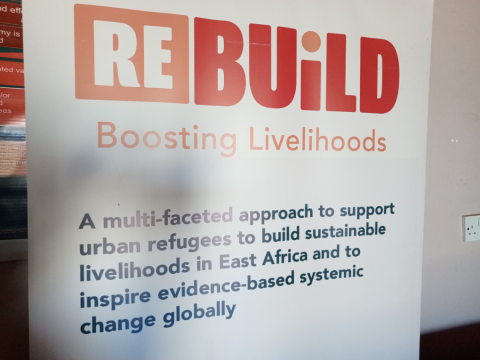
Awareness about refugee policies, their rights and responsibilities is still a critical area if we are to attain a dignified life for refugees living in Kampala City. A mapping exercise conducted by PLAVU in 2022 indicated that integration of refugees is still slow and therefore they cannot fully assimilate within the communities they live. This has left the refugees exposed to a challenge of discrimination. Language barriers and discrimination is highly hindering refugees to access job opportunities.
It is in this context that The International Rescue Committee (IRC) / IKEA Foundation and Platform for Vendors (PLAVU), under the Re: Build programme partnership, have agreed to jointly conduct a series of awareness trainings on refugee policy, rights and responsibilities in three Divisions of Kampala – Makindye, Rubaga and Central. This trainings will benefit selected village local Council leaders (LC1), selected refugees, leaders of RLOs, representatives for vendors and host community opinion leaders in the target divisions. The selection of participants will be based on the areas with most urban refugees.
It should be noted that refugees are by law entitled to fair and just treatment just like any other community member. But often this is not the case. Therefore, understanding and enforcing refugees’ policies, rights and responsibilities is a very important skills area that Re: Build partners need.
Targeting this awareness skills area to local leadership where refugees live provides a vital space for discussion of urban refugee self-reliance. Equally important to note is that local Council leaders are important grassroots leaders to bring a long-lasting effect and take forward the community advocacy to promote social cohesion between host communities and refugees.
The trainings aim to:
- Train local leaders and other Re: Build partners in refugee policies, rights and responsibilities for them to better address urban refugee’s need and self-reliance,
- Establish a strong network with local leaders to champion the urban refugee cause and to support Re: Build’s community advocacy efforts,
- Generate feedback from the local leaders on challenges encountered by urban refugee in self-reliance and generate community solutions,
- Document lessons from participating LCs implementing the Community refugee registration,
- Identifying challenges associated with the implementation of the community register and identify potential areas for strengthening of this important community-based registration system.
- Mobilise the refugees and the host community to embrace the community-based refugee registration.
